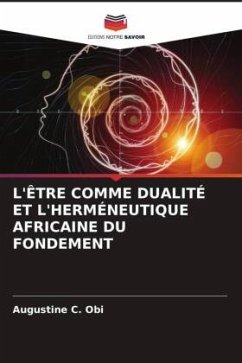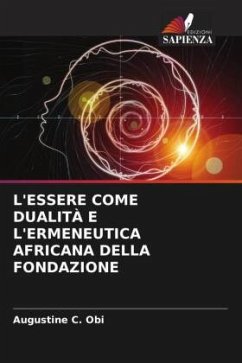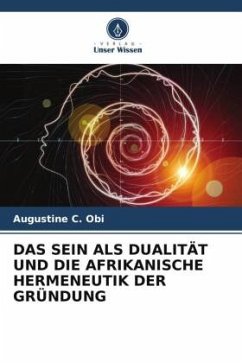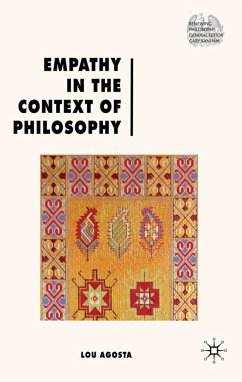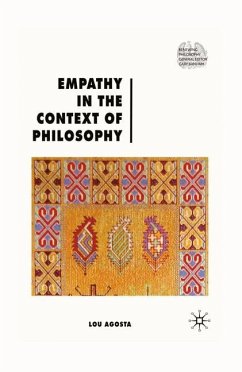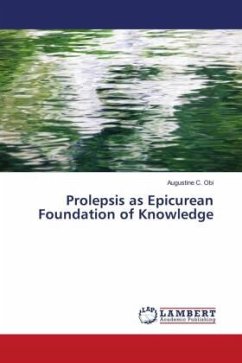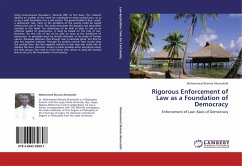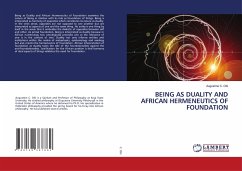
BEING AS DUALITY AND AFRICAN HERMENEUTICS OF FOUNDATION
Versandkostenfrei!
Versandfertig in 6-10 Tagen
51,99 €
inkl. MwSt.

PAYBACK Punkte
26 °P sammeln!
Being as Duality and African Hermeneutics of Foundation examines the nature of Being in relation with its role as foundation of things. Being is interpreted as harmony of opposites which constitutes its nature as duality. In the strict sense, opposites are not opposed to one another but are interpreted as aspects of one and the same thing. No entity is one thing by itself in the sense that it embodies the dialectic of opposites between self and other. As primal foundation, Being is interpreted as duality because in African numerology two ontologically precedes one as the relevance of one is in...
Being as Duality and African Hermeneutics of Foundation examines the nature of Being in relation with its role as foundation of things. Being is interpreted as harmony of opposites which constitutes its nature as duality. In the strict sense, opposites are not opposed to one another but are interpreted as aspects of one and the same thing. No entity is one thing by itself in the sense that it embodies the dialectic of opposites between self and other. As primal foundation, Being is interpreted as duality because in African numerology two ontologically precedes one as the relevance of one is in the context of two. Duality not only informs entities and institutions within the realms of metaphysics, epistemology and axiology but also orients the hermeneutics of foundation. African interpretation of foundation as duality takes the side of the foundationalists against the anti-foundationalists. Justification for the African position is that harmony of dual aspects of things validates the need for foundation.




